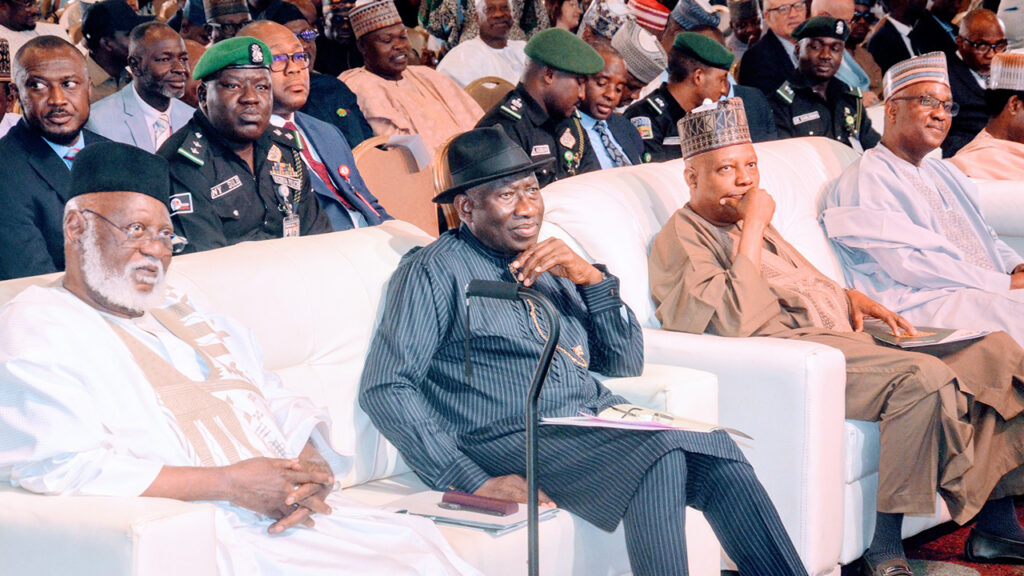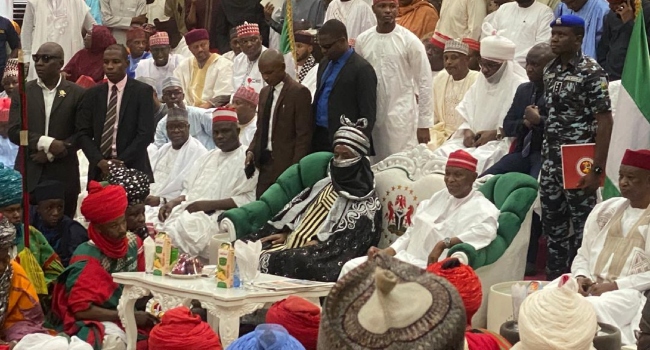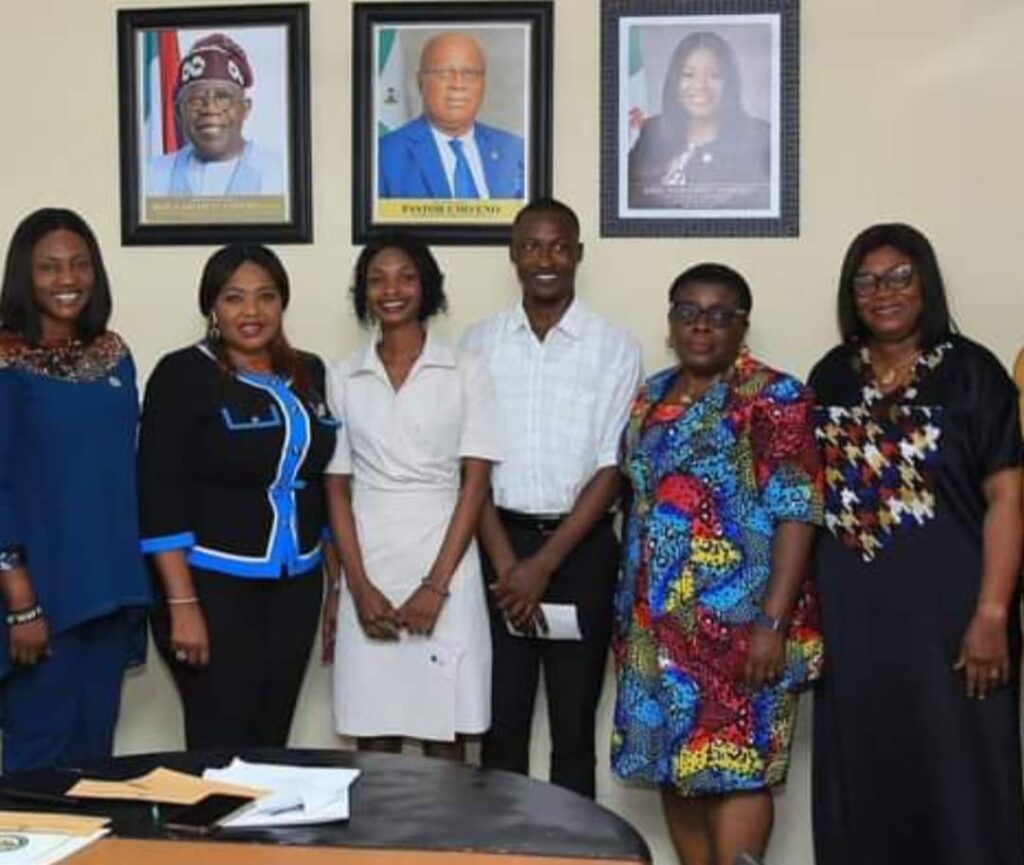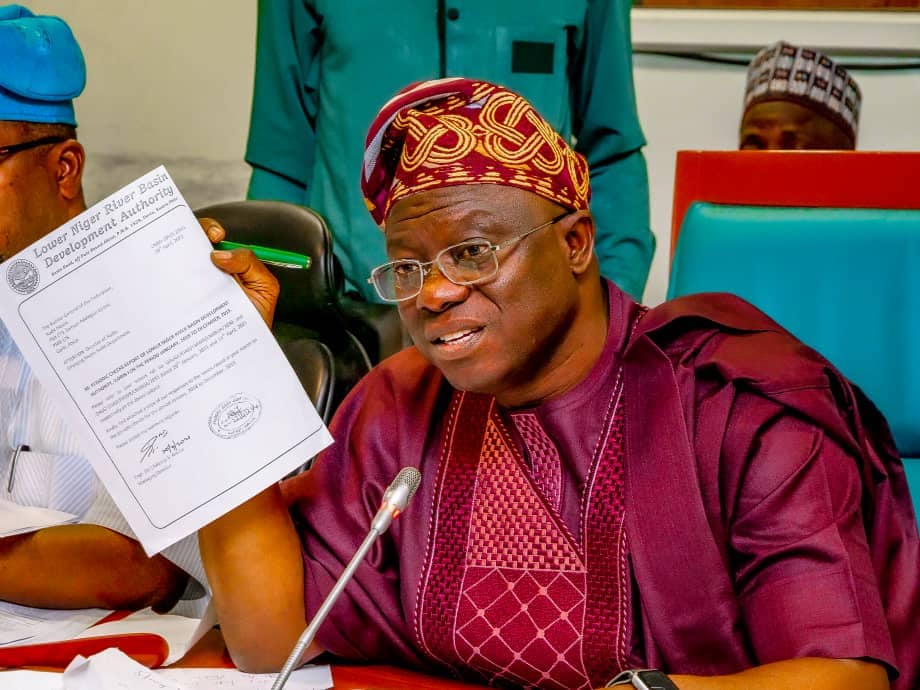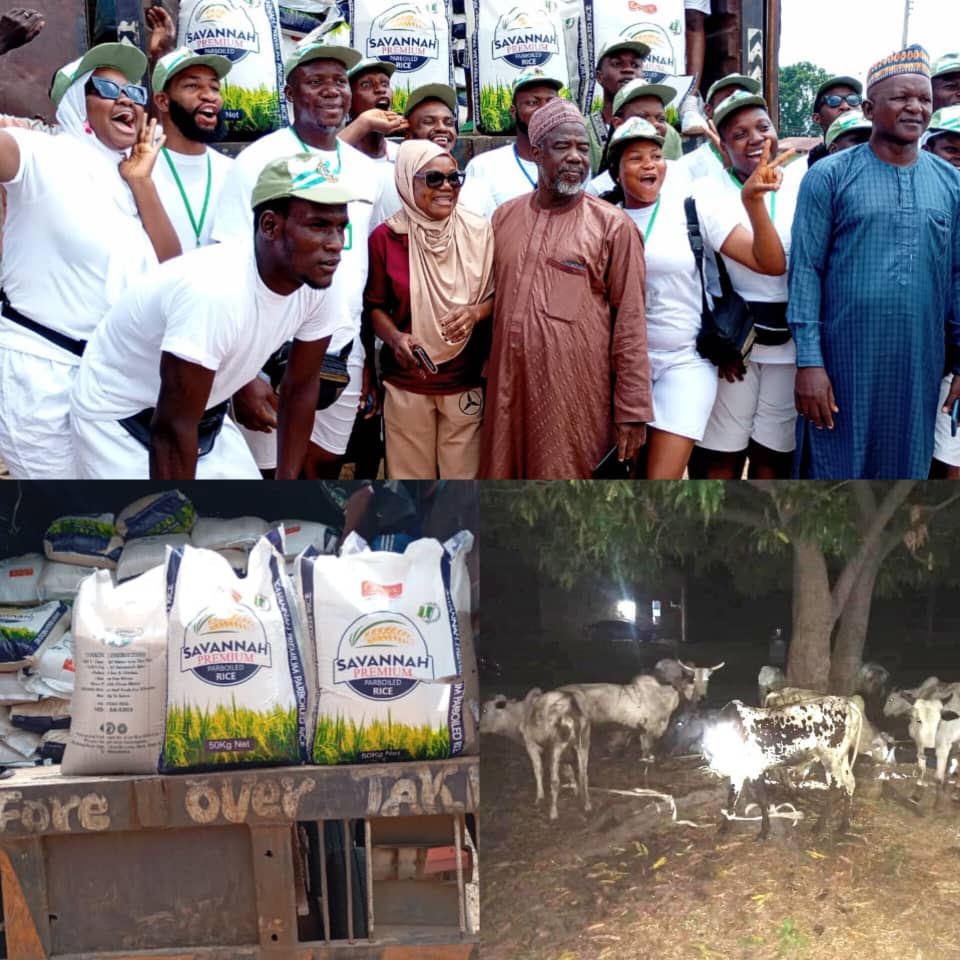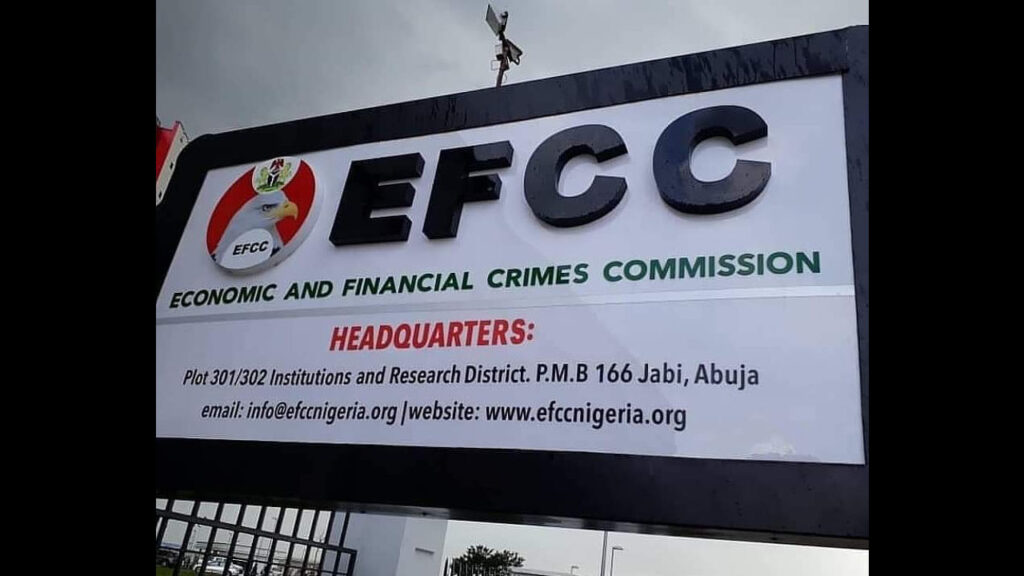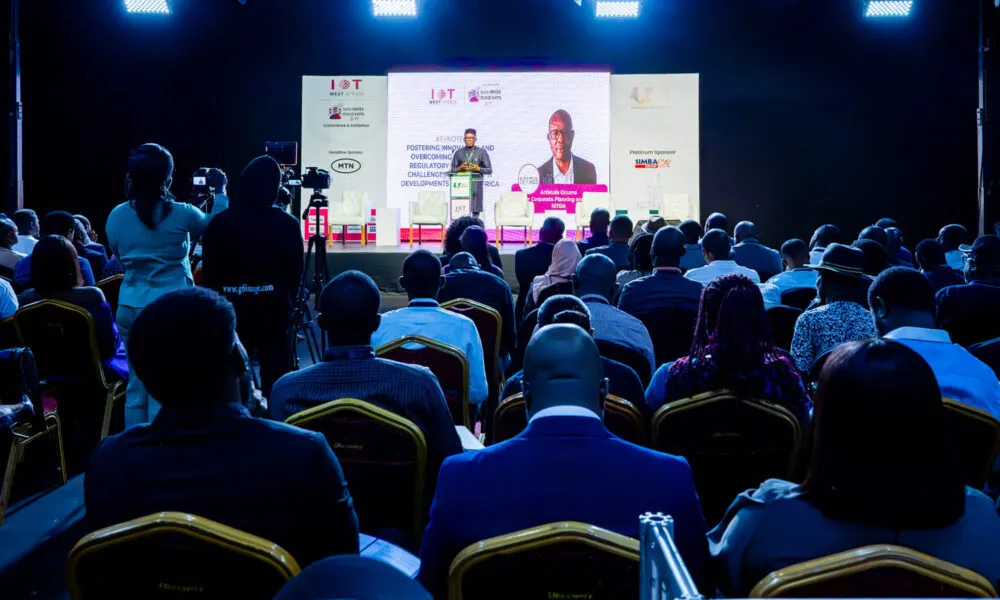
• Tinubu: State policing a potential milestone • You’re wrong, Afenifere, Aremu fault IGP
• Jonathan, Abdulsalami, Ooni back state police, Onaiyekan differs
• State police without tackling corruption exercise in futility, Onaiyakan warns
• Traditional rulers feeling the heat of insecurity – Ooni
• Lawmakers neutral, Speaker clarifies as Akpabio wants policing free from shackles of politics, tribalism
All hopes of a speedy reorganisation of the security architecture of the country were dampened yesterday as the Inspector General of Police (IGP), Kayode Egbetokun, said Nigeria is not mature to operate state governments-controlled police despite the myriad of security challenges facing it. Egbetokun stated this at the dialogue on state police organised by the House of Representatives Committee on Constitution Review.
The IGP, who was represented by Ben Okolo, an Assistant Inspector General of Police, said the National Assembly should instead merge the Federal Road Safety Commission (FRSC) and the Nigerian Security and Civil Defence Commission (NSCDC) as departments under the federal police.
Accentuating the force’s opposition to the idea of state police, he urged the lawmakers to properly fund the existing federal policing structure.“Most police stations and barracks that were built over the years in the colonial period have not undergone any renovations despite the increase in the strength of the Force. These have impacted negatively on the performance of the personnel.
“Governors could use the police forces under their control for political or personal gain and undermine human rights and security. There would also be a conflict of jurisdiction,” he said.
“It is the submission of the leadership of the Nigeria Police Force that Nigeria is yet to mature and ready for the establishment of state-controlled police,” the police boss said, arguing that state policing would further exacerbate the existing ethnic tension in Nigeria. The speech was met with jeers and loud protests from the audience.
The IGP’s position is against the publicly expressed stance of President Bola Tinubu on state policing. The President in February met with governors in Abuja during which they considered “the possibility of setting up state police.”
The police chief’s position notwithstanding, President Tinubu declared that the idea of state policing is not just a mere policy proposal, but a potential milestone in the evolution of the nation’s law enforcement framework that would create the opportunity to fashion law enforcement in a manner that addresses the various demands of communities across the country.
The President disclosed this when he declared open a one-day National Dialogue on State Policing with the theme, “Pathways to Peace: Reimagining Policing in Nigeria,” held at the Abuja Continental Hotel.
Represented by Vice President Kashim Shettima, President Tinubu reiterated his administration’s unwavering resolve to reform the Nigeria Police Force and enhance security across Nigeria, noting that his administration is much aware of the complex security issues confronting Nigeria, and as such is continually developing and refining its strategies and methods to address the challenges effectively.
“We view the outcomes of today’s deliberations as crucial inputs that will guide the government’s actions towards reforming the institution of the police and achieving a safer and more secure Nigeria.”
He implored participants at the dialogue to look at the idea of state policing from multiple angles, saying the President deserves commendation for being open and proactive towards the idea of reforming and decentralising the police force.
At the event attended by several top shots in the country, former president Goodluck Jonathan, however, believes that despite the challenges, state police have become “non-negotiable”. He said the spite of kidnapping and other crimes make state police a must-have in present-day Nigeria.
Other eminent Nigerians at the parley who voiced their views for state policing include former military Head of State, Gen Abdulsalami Abubakar (retd.); retired Catholic Archbishop, John Onaiyekan; and Ooni of Ife, Oba Adeyeye Ogunwusi.
The dialogue organised by the Office of the Speaker of the House of Representatives is the beginning of deliberations on the Constitution of the Federal Republic of Nigeria (alteration) bill 2023 (Establishment of State Police) sponsored by the Deputy Speaker of the House of Representatives, Benjamin Kalu and 13 others.
While Jonathan, Abdulsalami, Ooni of Ife, lawmakers and most of the speakers backed the establishment of state police, the IGP and Onaiyekan expressed different views.
The former president maintained that there is no way Nigeria can manage its internal security without state police. Drawing reference from his administration, Jonathan disclosed that the 2014 National Conference unanimously endorsed the establishment of “State Police, National Border Guard and National Coast Guard.”
He, however, said that Nigerians, including the National Assembly, must focus on how to create an operational framework for the State Police in a way that enhances the country’s national security architecture for the overall security and progress of Nigeria. He highlighted the perceived role of politicians, especially governors whom many analysts believe would use state police to harass political opponents, advising panelists in the dialogue to focus on “how do we ensure that state political actors do not abuse the state police.
“We can only end kidnapping and other forms of insecurity through the creation of state police”, Jonathan added. Abdulsalami who threw his weight behind Jonathan’s position, said Nigeria has been having a rough ride for the last ten years on insecurity.
While pointing out the roles of traditional rulers in ensuring peace and security, the former military ruler called on leaders to be transparent and honest in governance for peace to reign in the country.
Onaiyekan on his part, backed the proposal of the IGP, saying Nigerians must not see state police as the all-out solution for the worsening insecurity across the country. He said the country must tackle corruption among political office holders to make headway in the fight against insurgents.
According to him, the twin issue of funding and welfare for the existing police force must first be addressed. Speaking, Ooni of Ife urged the lawmakers to quickly pass the law for state police to be implemented to address the growing insecurity. The monarch said traditional rulers across the country are now feeling the heat of insecurity from their subjects.
He stated: “We are all headed towards the same direction. If you notice all the speakers and panelists, we haven’t seen anybody that has a different or has a contrary opinion. So technically, the people have spoken.
“But please swing into action. It’s about time. Do something that will be impactful to people. It is very important. We are the ones feeling the heat from our people. Yes, we are traditional rulers. Our palaces are not locked. No traditional ruler in this country would dare lock his palace. No, it’s not possible. But you have a lot of police securing you.
“You only come to see us when you are running for elections. But enough of talking. Let’s implement this. Everybody’s heading in the same direction. Let’s walk the talk now.”
For the Speaker of the House of Representatives, Abbas Tajudeen, the House remains neutral in the debates for and against the creation of state police. He, however, said the emerging challenges have rendered the current unitary policing system under the Nigeria Police Force ineffective, leading to calls for its decentralization by way of having state police.
MEANWHILE, the pan-Yoruba socio-cultural organisation, Afenifere, and a security scholar at the University of Ibadan, Prof. Oyesoji Aremu, yesterday, faulted the Egbetokun for saying that Nigeria is not ripe for state police.
Reacting to the IGP’s assertion, Afenifere through its National Publicity Secretary, Jare Ajayi, said the country was more than ready and it must even embrace local policing.
Ajayi said: “Afenifere insists that Nigeria is more than ready for state police; the country is even ready for local and community police. If we were ready in the First Republic, we are more than ready. We even have more complex security challenges now than what we had in the First Republic.
“A pastor with the RCCG was kidnapped in Oyo State a couple of days ago; a professor in a private university was also a victim of insecurity some days. We deserve local police. The IGP and other security agencies should have a rethink. Security is local. The President and governors have agreed to the need to have state police’’.
Aremu, who is currently serving as a Deputy Vice-Chancellor, Achievers University, Owo, said the comment of the IGP would drop back the progress made on state police. He said: “I am not surprised that it is coming from the IGP. It is not patriotic enough to have said that. The issue of internal insecurity has been taken over by the army. The IGP is not ready to lead the country out of security doldrums. It will further drop back on the progress made on state police”.
As the debate on state police gained traction yesterday, the President of the Senate, Godswill Akpabio, has admonished that the state police departments that must be set up must be free from the shackles of politics, religious extremism, tribalism, and ethnicism.
Akpabio, who spoke at the National Dialogue on Security and State Police, said it is important to ensure that the rights of Nigerians are upheld, that justice is served, and that the rule of law prevails. He urged Nigerians not to forget that security is not a privilege, but a fundamental right of every Nigerian.
“We must build a security architecture that is robust, transparent, and accountable. We must empower them to serve and protect, without fear or favour.”
According to him, it is necessary to draw inspiration from the United States of America, a nation that has successfully implemented a system of state and federal policing.
“In the USA, the FBI, the federal police body enforces federal laws and the state police departments enforce state laws. The FBI also investigates inter-state crimes. We must draw the lines because to have functional state police we must have strong federal police. But let us never forget that the power of the state police should never be used as a tool of oppression or witch-hunting.
“Let us ensure that political powers do not manipulate the state police to silence dissent or target their enemies. Let us ensure that the influential do not exert undue influence over the state police and that justice is blind to wealth, power, politics, or status. Let us build a system that is fair, just, and equitable for all.”

